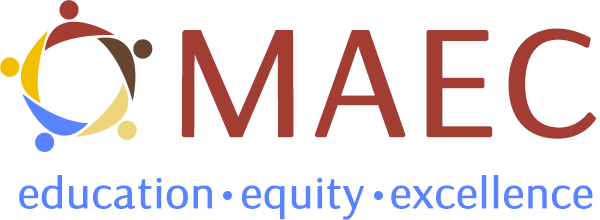Building Stronger Systems and Stronger Connections

Real, lasting change for students, families, and educators starts with understanding how your school or district works as a whole. MAEC’s Family Engagement Assessment Tool and Equity Audit help schools and districts better understand current practices, strengthen communication with families, and identify areas for improvement.
Gather meaningful data to drive change
Collecting data is the first step toward system-wide improvement. Surveys and data collections allow schools and school districts to:
- Build stronger relationships
- Identify needs early
- Ensure that all voices are heard
- Provide leaders with actionable data to guide their priorities
- Establish a baseline to monitor progress and make necessary adjustments
While traditional surveys are important, they don’t always provide education leaders with the information they need to truly transform systems. Two challenges frequently emerge:
- Stakeholders who participate in data collections feel left out of the process.
- Traditional climate surveys often don’t allow open-ended feedback, which means that schools and districts don’t understand why their communities think or feel a certain way.
To address these problems, surveys and needs assessments should be deliberate about using data collections as an opportunity for dialogue and incorporating qualitative data to capture deeper insights.
MAEC’s tools can help you get started
We offers two tools designed to support lasting, system-wide improvement. Unlike climate surveys, which are often led for accountability purposes, these system-wide assessments examine several data collections to understand how current policies, programs, and practices support or hinder access and opportunity for all students.
Family Engagement Assessment Tool
- Goal: Strengthen family engagement and evaluate the fairness of policies and practices in relation to family engagement.
- Created: 2023 (revised 2025)
- Aligned with: Dual Capacity Family Engagement Framework
- Structure: Nine domains of inquiry
- Link: Access the Family Engagement Assessment Tool (FEAT)
Equity Needs Assessment Tool
- Goal: Deepen educator understanding of equity and evaluate the fairness of policies and practices.
- Created: 1992 (revised 2021)
- Aligned with: Criteria for Equitable Schools
- Structure: Eight domains of inquiry
- Link: Access the Equity Audit
Transform systems through consensus
Our process stands out for its consensus-based approach, which fosters dialogue and invites qualitative data analysis. The consensus process consists of three steps:
- Establish school-based consensus teams.
- Team should include diverse stakeholders and remain a manageable size (between 5 to 15 people is typical).
- All members should participate through the consensus process.
- Develop team processes.
- Define the team’s purpose and steps for consensus meetings.
- Assign roles (facilitator, timekeeper, recorder, etc.).
- Set clear norms (e.g., stay engaged, speak truth, accept non-closure).
- Administer the assessment.
- Base ratings on group discussion.
- Bring individual ratings to meetings.
- If stuck, choose the lower rating.
A helpful strategy: use the “fist to five” method, where every person in the room signals agreement and readiness to move forward, on a scale from 0 (“strongly disagree and not ready”) to 5 (“strongly agree and ready”).
Partner with MAEC for ongoing support
We support school and district teams through every stage of the assessment process, from setup to implementation. Our services include:
- Establishing and guiding committees
- Customizing assessment questions to the school or district community
- Conducting further data collections (e.g., focus groups and interviews)
- Developing a comprehensive report of findings and recommended next steps
- Updating the school or district improvement plan to address the opportunities for improvement
- Delivering targeted professional development for staff
- Providing ongoing facilitation, feedback, and coaching
After a needs assessment, MAEC can support school teams to develop action plans, track progress, and celebrate success.
Ready to get started?
Contact MAEC today to prepare your community for system-wide improvement.

